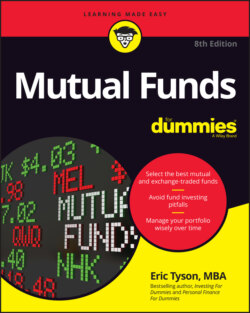Читать книгу Mutual Funds For Dummies - Eric Tyson - Страница 26
Limited partnerships
ОглавлениеAvoid limited partnerships (LPs) sold directly through brokers and financial planners. They are inferior investment vehicles. That’s not to say that no one has ever made money on them, but LPs are so burdened with high sales commissions and investment-depleting management fees that you can do better with other vehicles.
LPs invest in real estate and a variety of businesses. They pitch that you can get in on the ground floor of a new investment opportunity and make big money. Usually, they also tell you that while your investment is growing at 20 percent or more per year, you’ll get handsome dividends of 8 percent or so per year. It sounds too good to be true because it is.
Many of the yields on LPs have turned out to be bogus. In some cases, partnerships propped up their yields by paying back investors’ principal (original investment), without telling them, of course. The other hook with LPs is tax benefits. Those few loopholes that did exist in the tax code for LPs have largely been closed. The other problems with LPs overwhelm any small tax advantage, anyway.
The investment salesperson who sells LPs stands to earn a commission of up to 10 percent or more. That means that only 90 cents (or less) per dollar that you put into an LP actually gets invested. Each year, LPs typically siphon off 2 percent or more of your money for management and other expenses. Efficient, no-load mutual funds, in contrast, put 100 percent of your capital to work (thanks to no commissions) and charge 1 percent per year or less in operating fees.
Most LPs have little or no incentive to control costs. In fact, they may have a conflict of interest that leads them to charge more to enrich the managing partners. And, unlike mutual funds and exchange-traded funds, in LPs you can’t vote with your feet. If the partnership is poorly run and expensive, you’re stuck. That’s why LPs are called illiquid — you can’t withdraw your money until the partnership is liquidated, typically seven to ten years after you buy in. (If you want to sell out to a third party in the interim, you have to sell at a huge discount. Don’t bother unless you’re totally desperate for cash.)
The only thing limited about an LP is its ability to make you money. If you want to make investments that earn you healthy returns, stick with stocks (using mutual funds), real estate, or your own business.
